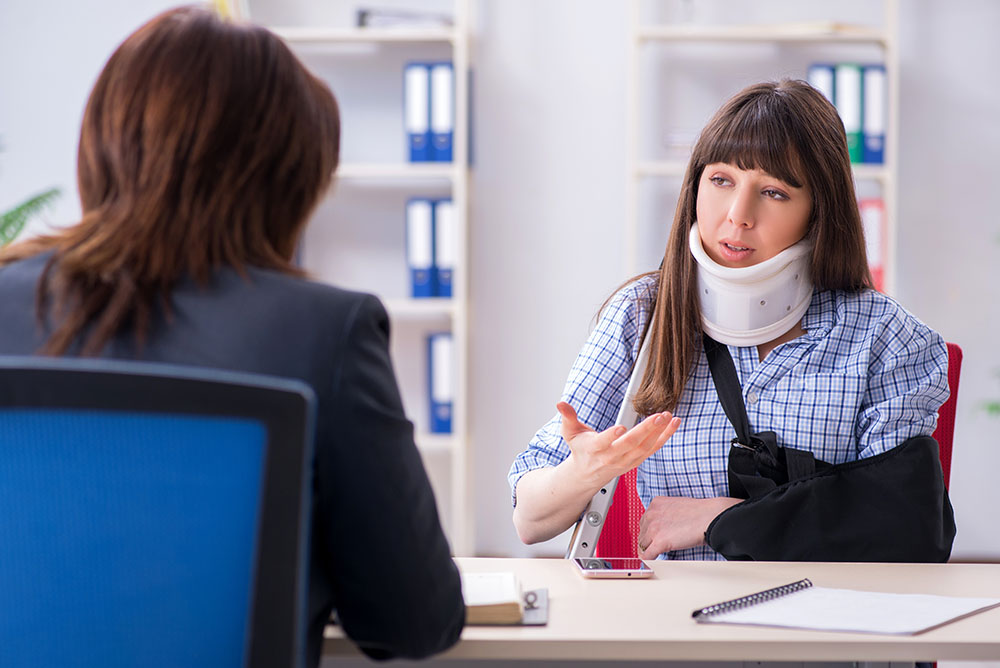Is a Commercial Property Owner at Fault for Your Slip and Fall Injury?
If you slip or trip, fall, and you’re injured because another party in Indiana – for example, a business – was careless, you have the right to recover compensation, but you will need the legal advice and assistance that an Indianapolis slip and fall attorney provides.
Surprisingly, falls and not traffic collisions are the foremost cause of spinal cord injuries in the U.S. Slip and fall victims may also suffer head, neck, and back injuries, broken limbs, and even traumatic brain injuries.
Every year, scores of victims are injured at shopping malls, supermarkets, and other commercial locations throughout Indiana because the management failed to maintain the premises safely or failed to alert employees, customers, and other visitors about known potential hazards.
What is Modified Comparative Fault?
If you are injured slipping or tripping and falling at a commercial location in Indiana, and if an Indianapolis premises liability lawyer can prove the property owner’s negligence caused the injury, you have the right to compensation for your medical costs, lost wages, and more.
Like thirty-one other states, personal injury claims in Indiana are governed by the modified comparative fault principle. This means you may recover damages after an accident and injury only if you are less than fifty percent at fault for the accident.
However, your share of the fault reduces the amount of compensation you can receive. If your damages amount to $100,000, for example, but you have twenty-five percent of the fault for the accident, your award is reduced by twenty-five percent, and you can recover only $75,000.
Why is a Medical Examination Essential?
After a slip and fall incident at a commercial location, seek medical assistance at once. You may not feel hurt, but you may have sustained a difficult-to-detect or latent injury that could emerge as a serious medical condition, so arrange immediately for a medical examination.
Without a quick medical examination, it may be impossible to link your injury directly to the slip and fall accident. If you seek compensation, the property owner could insist you were injured at another time and place or claim you’re not seriously injured at all.
Report the incident to the owner or property manager at once. Most major retailers, shopping malls, hotels, and theme parks provide pre-printed accident report forms. As you complete the form, stick to the facts and say nothing that might be misconstrued as an admission of fault.
Should You Speak to the Property Owner’s Insurance Company?
You may be contacted shortly after the accident by the property owner’s insurance company, so retain an attorney quickly. Don’t offer any statement, sign any insurance documents, or accept a settlement offer. Refer the insurance company’s questions to your attorney.
If the insurance company contacts you before you can consult an Indianapolis slip and fall attorney, tell the company your attorney will respond to their questions after your first legal consultation.
It’s important not to accept an insurance company’s first settlement offer. Do not be tempted or feel pressured. First offers are invariably “low-ball” offers, and your lawyer will negotiate for a substantially more generous settlement.
How Can You Prove Fault in Slip and Fall Accidents?
Because of the modified comparative fault rule, if you’re injured in a slip and fall and you seek damages, you and your lawyer must prove the other party was mostly at fault. A property owner may try to prove you were also at fault so that the owner can pay you less or nothing at all.
Gathering key evidence at the scene of the accident can significantly help your case. No lawyer will be there to advise you, but here’s what you can do immediately after a slip and fall accident that will strengthen your personal injury claim:
- Call for medical help.
- Take photographs of the location where you fell.
- Ask for the names and contact details of any eyewitnesses.
- Report the incident at once to the manager or property owner.
Photos and witness statements can be powerful, persuasive evidence that may lead to a quick, out-of-court settlement of your personal injury claim.
How Are Slip and Fall Cases Resolved?
Most slip and fall claims can be settled outside of the courtroom, but if a property owner denies liability or fails to make a reasonable settlement offer, your Indianapolis premises liability lawyer will take your claim to trial and ask a jury to order the property owner to compensate you.
If your case goes to court, your attorney will tell a jury how and to what extent you were injured, who was at fault, and why you should recover compensation for medical bills, lost earnings, and related damages.
Is There a Deadline for Taking Legal Action?
Under Indiana law, you have two years to take legal action after a slip and fall injury. There are several exceptions to this deadline, but do not wait two years – or even two weeks – to contact a personal injury lawyer. Make the call at once after a medical provider examines and treats you.
Your lawyer should see the evidence while it’s fresh and speak with the witnesses before their memories fade. Indiana’s personal injury lawyers represent clients on a contingent fee basis, so you’ll pay no attorney’s fee in advance and no fee until and unless you recover compensation.
Who Should Handle Your Slip and Fall Injury Claim?
An attorney at Beeman Heifner Benge can help you overcome the legal obstacles and acquire the compensation you deserve and need after a slip and fall injury.
Beeman Heifner Benge knows how to build a strong case on your behalf, and we understand how insurance companies operate. For decades, our personal injury team has successfully represented the injured victims of negligence in Indianapolis and throughout Indiana.
If you’re injured in a slip and fall incident – or any other type of accident – because another party was reckless or negligent, schedule a case evaluation immediately by calling Beeman Heifner Benge at 765-684-4355. Winning justice for our clients is our number one priority.

 CALL US NOW
CALL US NOW









